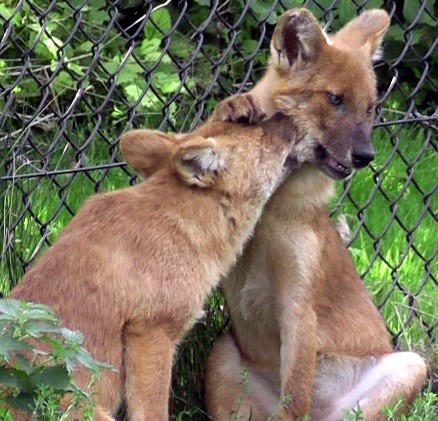
ResourcesUse of play signals, attention-getting behaviour and the effect of play initiation on the course of play in dholes

Project:
This study investigated signalling behaviour and the effect of a play’s start on the course of play in juvenile dholes. The analysis of social play was supplemented by observations to formal dominance relations in the captive dhole pack of Howletts Wild Animal Park, Bekesbourne (UK). The use of play signals and attention-getting behaviour in dependence of the receiver’s attentional state, measured by head and body postures, was studied by analyzing video recordings of playing pups. The results could not confirm the hypothesis that dholes modulate their signalling behaviour in correspondence to the receiver’s attentional state and recognize attention in conspecifics. The comparison of bouts that were initiated by play signals or attention getting behaviour and bouts that started directly with other play behaviour revealed significant differences. Initiated bouts contained less offensive behaviour, whereas the play initiator tended to dominate play of non-initiated bouts.
Behavioural observations, focussing on the exchange of the submissive behaviours ‘low posture’ and ‘food begging’, indicated a stable position of the dominant breeding pair, but ambiguous dominance relations within subordinates. The low amount of aggression and high levels of sociopositive behaviour supports previous results, which suggest increased levels of cooperation and behaviour synchronisation, but weakened dominance relations during the rearing season of dholes.
Researchers:
Sonja Sprenzel - Dresden University of Technology, Germany

